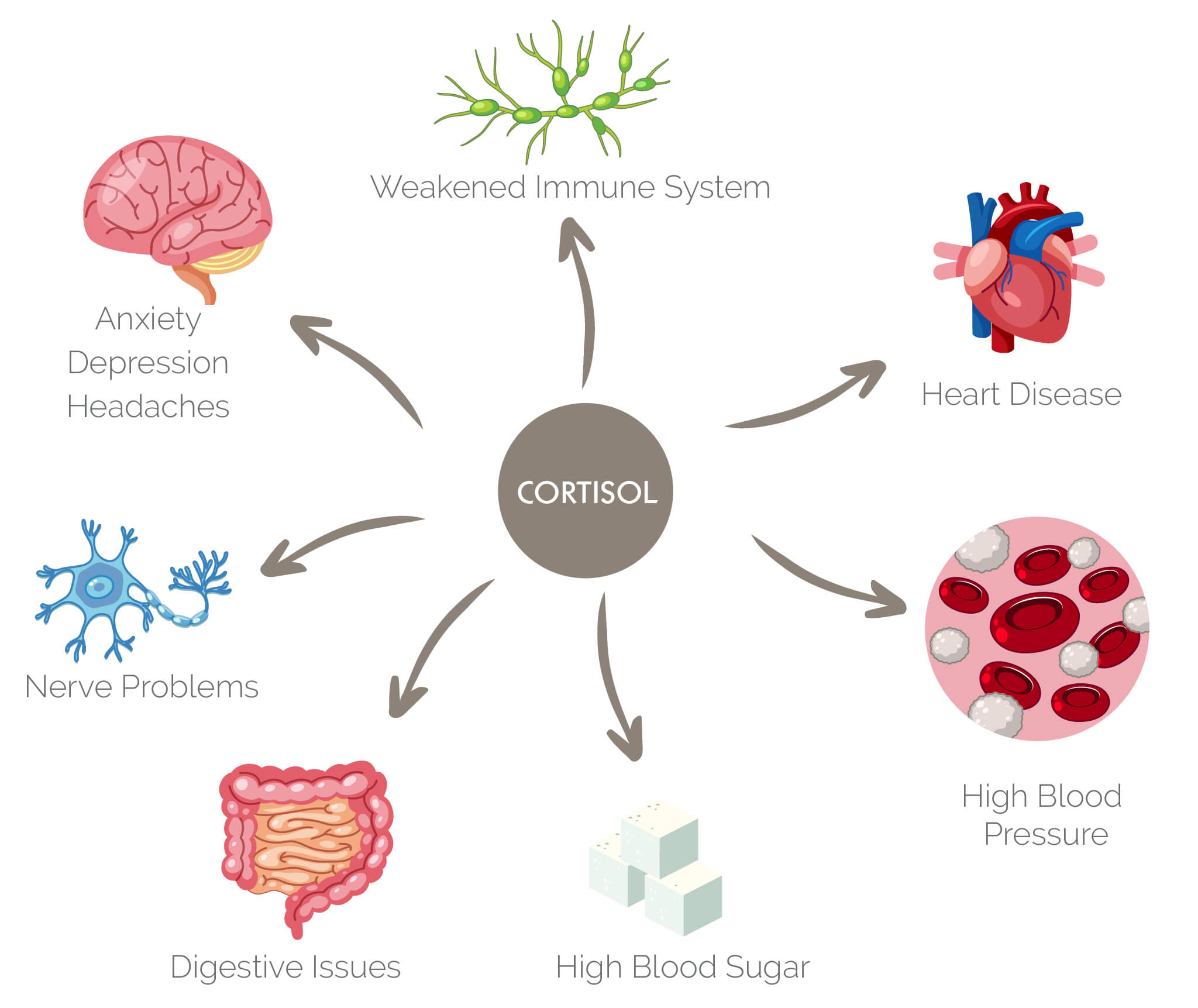
Why You Should Kick The Multi-Tasking Habit
Do you often try to multitask?
For most people, the answer will be yes, with many believing that they are actually quite good at performing more than one task simultaneously.
However, did you know that multitasking is something that the brain can’t physically do?
While you may think that you are being more productive, there is plenty of research out there that proves otherwise, while also pointing to the fact that multitasking can be harmful to a person’s health.
Here are just a few of the reasons as to why you should kick the multitasking habit.
The Brain Can’t Multi-Task
The human brain only has a finite amount of attention to give at any one time, and was actually designed to focus on just one task at a time.
Think that your brain is different, because multitasking is something that you do all the time?
Well, you may think that your brain is multitasking, but, chances are, it isn’t…
When you think you are multitasking, your brain is actually rapidly switching from one task to another.
Each of these switches requires two processes:
- Goal shifting – when the brain decides to do one thing over another
- Role activation – when the brain switches to the new set of rules needed for the next task
It takes just a fraction of a second for your brain to carry out these processes, which is why you don’t really realize that they are going on.
This doesn’t seem like much time, but, when your brain is constantly having to switch back and forth between tasks, all of those extra seconds begin to add up.
This routine also encourages bad brain habits…
What does this mean?
Well, each time you completely one of the tasks that you are doing, even if this is something as simple as replying to an email or posting on social media, a small amount of dopamine is released in the body. This is a chemical that makes you feel good and accomplished.
The brain loves dopamine, and the fact that these small amounts keep being released encourage the brain to continue switching from task to task, even when you don’t want it to. It also makes you think that you are accomplishing a lot, when really there isn’t much being actually done.
Productivity Drops When You Multi-Task
Most people multitask because they want to be more productive, not realizing that the opposite of this is more likely to happen.
While you may think that you are getting more done in your time, research shows that it actually takes longer to complete tasks when multitasking, especially when compared to carrying out each task on its own.
In fact, many experts believe that multitasking leads to a 40% drop in productivity, along with a higher chance of you making more mistakes.
Multi-Tasking Raises Stress Levels
You may not feel stressed when multitasking, but your brain definitely does…
All of that switching back and forth between various tasks results in cortisol, also known as the stress hormone, being released into your body.
Why is this bad?
Well, when it happens in small amounts, there is absolutely nothing wrong with this. In fact, it is this hormone that gave humans the fight or flight instinct, and enabled our species to evolve in the way that it has.

Cortisol is also important for several other functions in the human body, from bone growth to your sleep cycle.
However, when cortisol ends up running through the body for long periods of time, this is where the trouble begins…
Excess cortisol has a number of detrimental effects on human health, including:
- Depression and anxiety
- Digestive issues
- Increased inflammation within the body
- Heart disease
- Headaches
- Weight gain
- Sleep problems
- Impaired memory and concentration
- Premature aging
As you can see, cortisol, along with stress, is something that you want to keep to a minimum.
There are likely already plenty of other stressors in your life, so don’t add to this by multitasking.
Multi-Tasking Lowers Your IQ
Your IQ refers to your ability to think, reason and carry out cognitive tasks.
No matter how high your IQ may be, multitasking is something that will lower this back down.
In fact, multitasking lowers your IQ to the same level it would have been if you had stayed up all night.
Studies carried out on this subject have witnessed such significant IQ drops in men that it brings their IQ level down to that of an eight year old child.
Even just the thought of multitasking, such as knowing that you have an unread email in your inbox, can lower your IQ by 10 points.
It Could Contribute to Brain Damage
Research on this topic is still relatively new, but, so far, it shows that multitasking can actually lead to brain damage, with this damage being permanent in many cases.
How does multitasking result in brain damage?
Well, there have been MRI brain scans carried out on two groups of people – one group of frequent multitaskers and one group of people who don’t multitask much.
The results were surprising…
The scans showed that the group of people who multitasked more frequently actually had less brain density in the anterior cingulate cortex, which is the part of the brain responsible for controlling your emotions.
A person’s memory can also be permanently affected by multitasking. Since the brain isn’t properly paying attention to a task, it will be much harder for your brain to then recollect information relating to the task in the future, not only damaging your short term memory, but also your long term.
It Also Prevents Learning
In order for your brain to properly learn, it needs to have enough attention to give to the topic.
By multitasking, you are reducing the amount of attention your brain gives to each task, which will then prevent you from learning along the way.
This is especially the case for younger minds, with research suggesting that multitasking can have a seriously detrimental effect on learning and grades while at school.
It Could Lead to Over-Eating During Mealtimes
Multitasking isn’t just problematic when it comes to work and productivity…
It can also cause issues during mealtimes too.

So many people end up watching TV, going online or checking their phones while eating a meal.
However, this lack of concentration on the food that you are consuming prevents your brain from properly processing all that you have eaten. This then means that it doesn’t send a signal to your body to tell it to stop eating because it is full.
This results in you not feeling as full as you otherwise would have after a meal, either leading you to eat more, or to eat again after a short period of time.
It Inhibits Creativity
If you are working on a project that requires you to be creative, then multitasking is something that you should definitely avoid.
Why?
Because creativity requires so much focus and concentration from the brain, especially if you are trying to use creativity to solve a problem.
If you want nurture your creativity, then you will need to bring all of your attention to the creative task at hand, rather than letting your brain wander off onto other tasks.
And Prevents Mindfulness
Many would say that mindfulness is the most advanced form of attentiveness.
What is mindfulness?
It refers to being completely present in the moment, with many considering it to be a form of meditation.
Mindfulness brings with it several benefits, such as:
- Decreased stress and anxiety
- Improved cognitive functioning
- Lowered blood pressure and heart rate
- Increased attention, focus and awareness
- Calmness
As you can see, mindfulness brings nothing but positives, and is something that could benefit just about everyone.
Unfortunately, multitasking is something that really detracts from this, preventing a person from experiencing mindfulness.
How to Kick the Multi-Tasking Habit
Hopefully, by now, you will be in full agreement that multitasking is a habit you need to beat.
But how exactly do you go about doing this?
Well, although research shows that the brain can just about handle two tasks, but no more, at once, your best bet in kicking the multitasking habit would be to give single-tasking a try.
Never heard of that phrase before?
It is exactly what it sounds like – concentrating on a single task, rather than multiple tasks.
This may sound simple, but, for many, it is actually quite difficult…
The key here is to force yourself to focus on the most important task at hand, giving yourself the time you need to complete this. Keep all other distractions well away, so that your brain is less tempted to switch over to another task. If you are at work, a clean and clear desk can really help with this, as simply glancing over at something else you need to do can limit how your brain functions.
Is your schedule too full to focus on just one task at a time?
If so, this doesn’t mean that you should multitask. Instead, it means that you need to cut back on some of the commitments you have made in your schedule.
Try to prioritize everything that you need to do, dropping any tasks that are not actually important.
For those with a packed schedule, you likely also need to learn how to say no to other people, as well as other tasks. Taking on more than you and your brain can actually handle will only be detrimental in the long run, so make sure that you don’t say yes to extra projects that you don’t actually have time for.

Another technique that can help is to perform tasks in batches, which is also known as chunking.
This basically means that you set aside chunks of time each day to perform certain tasks. For example, check your emails and messages all at once, once a day, rather than doing this constantly throughout the day.
This enables your brain to fully focus on what you are doing, rather than having to switch back and forth.
Not got enough self control to resist checking your phone and messages throughout the day?
There are a few apps available that can help you with this…
These enable you to set a length of time during which the app will block you from checking your email, social media, or any other websites that tend to distract you.
Still finding it difficult to kick the multitasking habit?
Keeping a journal can really help.
How?
Because this will enable you to track how you work, along with how much you get done, while also keeping a record of any distractions you have faced. Being able to see all of this right in front of you can then help you to plan how to overcome your multitasking habit.
Could Multi-Tasking Ever Be Beneficial?
Although multitasking is never really beneficial, there are certain tasks that aren’t negatively impacted if you choose to do something else at the same time.
The perfect example of this would be listening to music, or to an audiobook, while you are working out.
Since the main task you are focussing on is physical, your body is able to do this on auto-pilot, as the task doesn’t require much brain attention. This then enables your brain to focus more on the second task that you are doing.
Watching television while folding laundry is another example, as the folding is something that does not require much brain power.
Multitasking is something that just about everyone does, although the majority of these people do not realize just how detrimental it can be. From reducing productivity to increasing stress, multitasking is a habit that you should try to tackle as soon as possible. Trust us, it won’t be long before you see all of the benefits that single-tasking can bring to your life!



